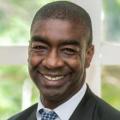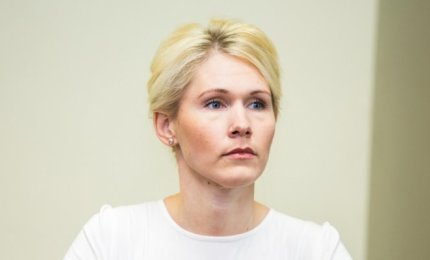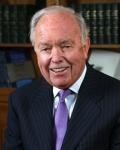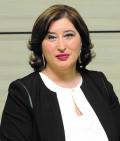29th Annual Conference and General Assembly meeting of the ACEEEO
Date: 8-10 September 2020, Tbilisi, Georgia (online)
Topic: Elections and Communications - The role of Electoral Management Bodies in conducting and facilitating effective communication
The annual conference focuses on the following issues of Communications:
- different aims of external communications: information, education and tansparency;
- key opportunities and challenges of being 'online' on internet and social media;
- internal communications: flow of information within the EMB system.
Organizers
Central Election Commission of Georgia
 The Election Administration of Georgia is an administrative body, which, within its authority, is independent from other state bodies and operates in accordance with the legislation of Georgia. The election administration organizes the elections of the President of Georgia, Parliament of Georgia, municipal representative body - Sakrebulo, municipal executive body - mayor elections, referendum and plebiscite. The supreme body of the Election Administration of Georgia is the Central Election Commission (CEC), which within its authority directs and controls election commissions at all levels and ensures uniform application of the election legislation throughout the territory of Georgia.
The Election Administration of Georgia is an administrative body, which, within its authority, is independent from other state bodies and operates in accordance with the legislation of Georgia. The election administration organizes the elections of the President of Georgia, Parliament of Georgia, municipal representative body - Sakrebulo, municipal executive body - mayor elections, referendum and plebiscite. The supreme body of the Election Administration of Georgia is the Central Election Commission (CEC), which within its authority directs and controls election commissions at all levels and ensures uniform application of the election legislation throughout the territory of Georgia.
The supreme body of Election Administration of Georgia is the CEC, which, within its authority, manages and controls all levels of election commissions. The CEC is composed of a Chairperson and 11 members. The CEC Chairperson simultaneously is a member of the CEC. The Parliament of Georgia elects five members of the CEC, on the recommendation of the President of Georgia, while the qualified parties appoint six members as defined by the Organic law of Georgia "Election Code of Georgia". The term of office of the CEC Chairperson and CEC members appointed by the Parliament is five years. The organization and conduct of fair, credible, transparent elections is ensured by CEC’s Secretariat, which, with help of its structural units, carries out organizational, legal and technical support of election administration and support to the CEC.
The Supreme Election Commission of Autonomous Republic of Adjara (SEC) ensures the preparation and conduct of elections of Supreme Council of Autonomous Republic of Adjara, and, within its authority, ensures uniform application of electoral legislation on the whole territory of Adjara.
District Election Commission is a permanent territorial body of the Electoral Administration of Georgia, which in the Election district, within its power ensures the conduct of elections, referendum, and plebiscite, oversees the process of implementation of the electoral legislation of Georgia, and ensures its uniform application. There are total of 76 DECs in Georgia. A DEC is composed of 12 members; the CEC elects five permanent members, while, during election period, qualified parties appoint six members and the CEC elects one.
Precinct Election Commission is a temporary territorial body of the Electoral Administration of Georgia, which, within its power, ensures the conduct of elections, referendum, and plebiscite in an electoral precinct, implementation of the electoral legislation of Georgia, compliance of the procedures under the electoral legislation of Georgia during polling, exercise and protection of the rights of voters, representatives, and observers guaranteed by the Constitution of Georgia and Electoral Code. There are around 3.700 PECs created during electoral period in Georgia. A PEC is composed of 12 members; the upper election commission elects six members while qualified parties appoint six members.
Vision of the Election Administration, as of an open, competent and reliable institution is to ensure the development and fortification of the democratic electoral process.
Mission is to support the development of electoral culture, provide equally accessible, effective, innovative services to voters and other electoral stakeholders and conduct secure electoral processes in accordance with the international standards of credibility.
For the successful implementation of the mission, the Election Administration expresses its corporate commitment to the following values: independence, impartiality, transparency, responsibility and accountability, professional integrity and ethics, innovation and service orientation approach, inclusiveness and gender equality, proactivity and involvement.
ACEEEO Secretariat
 The Association of European Election Officials, formerly the Association of Central and Eastern Election Officials, was established in 1991. It is a non-governmental organization, an alliance that is independent from political parties. The Association’s main objective is to provide assistance for holding free and fair elections. In order to achieve this mission, the Association supports the operation of permanent election commissions and offices and actively contributes to the establishment of legal standards regarding the requirements for democratic elections. The ACEEEO organizes different meeting points for election professionals – conferences and seminars – and provides professional assistance and guidance for those who require it. By 2017 the ACEEEO counts 25 member-countries and several member-NGOs and keeps good partnership relations with the different international organizations in the field of elections.
The Association of European Election Officials, formerly the Association of Central and Eastern Election Officials, was established in 1991. It is a non-governmental organization, an alliance that is independent from political parties. The Association’s main objective is to provide assistance for holding free and fair elections. In order to achieve this mission, the Association supports the operation of permanent election commissions and offices and actively contributes to the establishment of legal standards regarding the requirements for democratic elections. The ACEEEO organizes different meeting points for election professionals – conferences and seminars – and provides professional assistance and guidance for those who require it. By 2017 the ACEEEO counts 25 member-countries and several member-NGOs and keeps good partnership relations with the different international organizations in the field of elections.
Zsolt Szolnoki - Secretary General
István Áhi - Program Manager
János Mécs - Project Manager
Concept Paper and Findings
The Association of European Election Officials (ACEEEO) is an international organization with 25 member institutions from East-Central Europe and Asia. Our mission is to provide a platform for dialogue for our member election management bodies (EMBs) and partner international organizations, as well as to gather the knowledge, best practices and know-how in the region. In 2020 our activities will focus on the theme Communications. The topic is not new to us; our annual conferences touched upon the topic from the perspective of EMBs as well as from other actors. Our 12th conference in 2003 dealt with the topic of ‘Media and Elections’, the 22nd conference in 2013 engaged with the topic of ‘The challenges of the Social Media development in electoral matters’. Moreover at almost all of our conferences the topic came up; EMBs and other stakeholders are eager to communicate effectively to the citizenry, and election experts are keen on researching how this communication may be improved. The Tbilisi Conference is thus embedded into this wider project.
In the Conference the theme of Communications is narrowed down, the participants focused on the role of EMBs in conducting and facilitating effective communication. However, EMBs do not act in a vacuum, especially not when they are communicating. The conference thus offered insights to the context, namely, to the role of traditional- and social media, moreover, to the topic of misinformation.
EMBs are embedded into a communicative sphere; they have to keep in touch with the relevant stakeholders (the citizenry, political actors, other electoral and judicial bodies, etc. – ‘external communications’) as well as they have to organize the proper flow of information within the EMB system (‘internal communications’). Moreover, the communications of EMBs pursue different aims: they educate the voters, provide information to political stakeholders, and enhance trust in elections through the transparent communication. Furthermore, institutional good practices could be shared such as the exact operation of the office of communication within the EMB. Finally, the adaptation to the online platforms and social media should be addressed in more detail; how EMBs should be represented on the internet and social media surfaces, what the key opportunities and challenges are.
The Conference was structured to embrace both the external and internal aspects, as well as different aims, including education, providing of information, etc. Regarding external communication, the importance of upholding trust is to be underlined, and EMBs have an important task in this regard. Both traditional and modern forms of communication needs to be applied, and a special attention should be paid to the youth. As to the context, a lot depends on how free and pluralistic the media sphere is, moreover, issues should be approached from a gender angle as well, for example gender misinformation. Regarding internal communications, the constant flow of information within the EMB system is of upmost importance, as well as with other relevant actors, e.g. experts, political parties, courts. EMBs should be prepared strategically to deal with disinformation during elections. Finally, elections from the ACEEEO region show that it is possible to conduct elections and communications successfully even in times of pandemic, however, special attention should be paid that the changes in order to adapt to the new situation are enacted in a transparent and democratic fashion.
ACEEEO Recommendations - Elections in the ACEEEO region in times of Covid-19
Agenda and presentations
|
8 September 2020 (Tuesday) |
|
|
Executive Board Meeting (for Executive Board members) |
|
|
ACEEEO General Assembly Meeting (for ACEEEO members) |
|
|
9 September 2020 (Wednesday) |
|
Official opening of the conference and the exhibitionThe conference was opened by Zsolt Szolnoki (Secretary General, ACEEEO) and Tamar Zhvania (President of ACEEEO, Chairperson of the Central Election Commission of Georgia). The opening was followed by Ms. Zhvania’s presentation that gave an overarching view of the whole conference theme, of the role of EMBs in conducting and facilitating effective communications. Besides providing a useful mindmap of the topic, the presentation described the different ways CEC Georgia conducted communications, providing useful best-practices for the audience. Speakers: |
|
Presentation of the Central Election Commission of Georgia |
|
Roundtable Discussion I. |
|
|
External Communications – Voters, Citizens ‘How to keep trust in elections – Channels of reaching out to voters’ Trust is inevitable when it comes to elections, and, accordingly, Roundtable I. dealt with the topic of external communications towards voters with the moderation of Arnis Cimdars (President of the Latvian Election Expert Association, Honorary Member of ACEEEO). The first speaker, Hassan K. Sesay (Senior Electoral/Political Affairs Officer, Electoral Assistance Division, Department of Political and Peacebuilding Affairs, United Nations) examined the question from a policy perspective, giving insight as to how EMBs can promote trust in elections. The speaker presented UN’s work in electoral assistance, underlining that technical assistance is by far the main form of assistance, and presenting the main core principles of the electoral assistance work of UN. He was followed by Corneliu Pasat (Deputy Head of Communication, Public Relations and Media Department, Central Election Commission of the Republic of Moldova), who gave a thought-provoking presentation on youth participation in Moldova. Mr. Pasat presented the different way CEC Moldova communicates with the youth, and how effective this communication may be if applied sufficiently. Moderator: Speakers: |
|
Roundtable Discussion II. |
|
|
External Communications – Role of the media in electoral communications Roundtable II. was moderated by Laura Matjošaitytė (Chairperson of the Central Electoral Commission of Lithuania) and tackled the question of the role of media in electoral communications. The first speaker, Gábor Polyák (Professor at the University of Pécs) gave a detailed description on how the Hungarian government exerts impact on the media through different means. He was followed by Ingrid Bicu, who approached the question from a gender-sensitive angle, and presented on the gender based disinformation in elections, showing how different roles women play in political and electoral life and the grave challenges they face. The speaker emphasized that disinformation should be examined with special regard to gender-based disinformation. The third speaker was Fosco Riani (Public Policy Associate Manager for elections in Europe, Middle East and Africa, Facebook - Gold Sponsor of the Conference) who presented on the various ways protection of integrity of election is carried out on the social network. Mr. Riani informed the audience on the most important objectives of Facebook and the efforts made to achieve them.
Moderator: Speakers: |
|
|
10 September 2020 (Thursday) |
|
Roundtable Discussion III. |
|
|
Internal and External Communications – Spreading information within the EMB system – Communication with other State Bodies and Stakeholders The second day of the conference started with Rouldtable III. with the title ‘Spreading information within the EMB system – Communication with other State Bodies and Stakeholders’, which was moderated by Zsombor Vajda (Vice-President, Permanent Electoral Authority of Romania). The first speaker, Paul DeGregorio (Honorary Member, ACEEEO) first honored István Zsuffa, who has recently passed away, and was of great service to ACEEEO in particular and elections in general. Mr. Gregorio presentation gave an overview of the current situation in the U.S., emphasizing the challenges posed by the COVID-19 pandemic, and how election officials may overcome these difficulties. He also embarked on the different ways EMBs may communicate with other state bodies and stakeholders, giving some illuminating examples of best practices. He was followed by Pierre Garrone (Head of Elections and Political Parties Division, the Venice Commission of Council of Europe), who gave a description on how the Council of Europe is involved in the field of digital technologies and elections. Afterwards, he gave an introduction on the related report that was jointly adopted by the Venice Commission and the Council of Democratic Elections in 2019. Last, but not least, Nermin Nisic (Senior Electoral Expert, IFES) presented on lessons learned and best practices regarding internal and external communications. Mr. Nisic informed the audience on the campaign tools that were applied to spread information to poll-station workers as well voters, via traditional means and social networks. Moderator: Speakers: |
|
Roundtable Discussion IV. |
|
|
Dealing with disinformation during elections: lessons learned Roundtable IV. tackled the question of disinformation, and the moderation was provided by the Delian Project. The first speaker, Erik Brattberg (Europe Program Director, Carnegie Endowment for International Peace) gave an overview on the threat of disinformation based on the research of Carnegie Endownment, and on the framework that was elaborated by the organization. This included a typology of interferences, on electoral dimension and potential targets. He was followed by Manuel Carrillo Poblano (Head of the International Affairs Unit, Nacional Electoral Institute – INE - of Mexico) gave insights regarding the trends and impact of digital communication on elections and on electoral integrity. The speaker covered both the positive and negative impact on the flow of information in the electoral process. The last presentation of the panel was given by Thomas Hicks (Commissioner, U.S. Elections Assistance Commission), who informed the audience on the activities of the Assistance Commission, on the U.S. election administration system and an overview on the 2016 elections and the COVID-19 situation. Moderator: The Delian Project is a Non-Governmental Organization dedicated to helping jurisdictions implement positive change in the democratic voting process through the application of technology. The Delian Project is a non-profit organization registered in Canada. It was created as a philanthropic entity by Senior Election Management Officials as part of a Corporate Social Responsibility focus in 2012. The name is derived from the Delian League, the first body of democratically elected city-states in Ancient Greece. Delian maintains a seasoned Board of both Directors and Advisors. Speakers:
He joined Carnegie from the McCain Institute for International Leadership at Arizona State University, where he was the director for special projects and a senior fellow and helped launch the Kissinger Fellowship. Brattberg was previously the 2014 holder of the Ron Asmus Policy Entrepreneur Fellowship at the German Marshall Fund, a senior fellow at the Atlantic Council, adjunct senior fellow at Center for a New American Security, visiting Fulbright fellow at Center for Transatlantic Relations at Johns Hopkins University SAIS, visiting fellow at the European Policy Centre in Brussels, consulting researcher at SIPRI and European Council on Foreign Relations, and a research associate at the Swedish Institute of International Affairs. He also has work experience from the Folke Bernadotte Academy and Permanent Mission of Sweden to the United Nations in New York. His numerous articles and commentary have appeared in the Washington Post, Financial Times, Foreign Policy, Politico, Atlantic Monthly, the National Interest, the American Interest, and the South China Morning Post. He is a frequent expert commentator to major news outlets, including ABC News, Al Jazeera, BBC News, Bloomberg, CNBC, CNN, Deutsche Welle, France 24, NBC News, and NPR. His research has been published in peer-reviewed journals and by institutions such as Johns Hopkins University, the Center for Strategic and International Studies, the German Council on Foreign Relations, and the European Policy Centre. He frequently lectures at universities and think tanks and has testified before the European Parliament’s Committee on Foreign Affairs and the U.S.-China Economic and Security Review Commission. He is a member of the steering committee of the Transatlantic Democracy Working Group. He holds a master of science in foreign service (MSFS) from Georgetown University and master’s and bachelor’s degrees in political science from Uppsala University.
Thomas Hicks was nominated by President Barack H. Obama and confirmed by unanimous consent of the United States Senate on December 16, 2014 to serve on the U.S. Election Assistance Commission (EAC). Prior to his appointment with EAC, Commissioner Hicks served as a Senior Elections Counsel and Minority Elections Counsel on the U.S. House of Representatives Committee on House Administration, a position he held from 2003 to 2014. In this role Mr. Hicks was responsible for issues relating to campaign finance, election reform, contested elections and oversight of both the Election Assistance Commission and Federal Election Commission. His primary responsibility was advising and providing guidance to the committee members and caucus on election issues. Mr. Hicks has talked with Americans in every state about their voting experiences. In addition, he has worked with state and local election officials across America to address critical election concerns. Prior to joining the U.S. House of Representatives, Mr. Hicks served as a Senior Lobbyist and Policy Analyst from 2001 to 2003 for Common Cause, a nonpartisan, nonprofit organization that empowers citizens to make their voices heard in the political process and to hold their elected leaders accountable to the public interest. Mr. Hicks has enjoyed working with state and local election officials, civil rights organizations and all other stakeholders to improve the voting process. Mr. Hicks served from 1993 to 2001 in the Clinton Administration as a Special Assistant and Legislative Assistant in the Office of Congressional Relations for the Office of Personnel Management. He served as agency liaison to the United State Congress and the President’s Administration on matters regarding Federal personnel policies and regulations. Mr. Hicks received his J.D. from the Catholic University of America, Columbus School of Law and his B.A. in Government from Clark University (Worcester, MA). He also studied at the University of London (London, England) and law at the University of Adelaide (Adelaide, Australia). |
|
Lessons learned from the Elections held During the Pandemic |
|
|
The roundtable was followed by the section Lessons learned from the Elections held During the Pandemic, moderated by Richard Soudriette (Honorary Member of ACEEEO). The first speaker, Damir Kontrec (Vice-President, State Electoral Commission of the Republic of Croatia) presented on the impact of COVID-19 on the timing of elections and on the applicable legal background. The speaker gave a detailed overview of the electoral process, namely, the cooperation of the different state bodies. The next speaker was Laura Matjošaitytė (Chairperson of the Central Electoral Commission of Lithuania) who presented on the preparations of the upcoming parliamentary elections that are held in October 2020. The third speaker Enver Saljihi (Memeber of State Election Commission of North Macedonia) presented in a unique fashion, via short film. The film involved information on the special measures adopted to organize the early elections taking place in North-Macedonia. The last presentation was delivered by Krzysztof Lorentz (Head of the Department, National Electoral Office of Poland), who spoke not just about the elections held in the ordinary way during the pandemic, but about the election held – uniquely in the world – with closed voting booths. Moderator:
From 2013 to 2018 Mr. Soudriette, served as chairman of the SGO Smartmatic International Elections Advisory Council. He was president of the Center for Diplomacy and Democracy (CDD) in Colorado Springs from 2009 to 2015. Mr. Soudriette was a founder of the ACE Knowledge Network in 1998 and the Global Election Organization Conference (GEO) in 1999. He regularly consults on democracy, elections, voting technology and testing. In 2005 Mr. Soudriette was honored by the University of Paris for his work in promoting democratic elections and was a recipient of the IFES Charles Manatt Democracy Award in 2007. Mr. Soudriette is the author of many articles and publications on elections and is a frequent university lecturer on elections. He has observed elections in more than 60 countries. Mr. Soudriette and his wife reside in San Miguel de Allende, Mexico. Speakers:
Along with his judicial career, Mr. Kontrec has also been involved into elections as member and president of the county and city level electoral commissions since mid-1990s. Since 2018 he is the Vice-President of the State Electoral Commission of the Republic of Croatia. Soon after being appointed as Vice-President of the State Electoral Commission of the Republic of Croatia, he became member of the ACEEEO Executive Board and has been its member ever since. He is a renowned author of numerous expert papers and books mainly dealing with civil law as well as a regular panelist and teacher at expert conferences and expert courses.
|
|
Recapitulation speeches, conference findings.Official closing of the 29th Conference |
|
|
Chair:
Speakers:
Mr. Cimdars has also contributed as lecturer, consultant and expert in the fields of voter registration, voter education, election commission training, election observation and IT solutions for elections. He has worked as the election expert of the Venice Commission of the Council of Europe several times. He was the Executive Board Member of the ACEEEO since 2000, former President of the ACEEEO from 2005 to 2007. In 2014 Arnis Cimdars received the highest award in the Republic of Latvia for special merits to the country – The Order of the Three Stars. In 2019, he became an honorary member of the ACEEEO.
He is also an expert in Public-Private Partnership within the Ministry of Labour, Family and Social Protection / Ministry of Education, Research, Youth and Sport. Mr. Vajda served as member of the Central Electoral Bureau for the 2019 Presidential Elections, the 2016 Local Elections and Parliamentary Elections and the 2014 European Parliament Elections and Presidential Elections. Since 2018 he has served as Vice-president of the Permanent Electoral Authority of Romania. He has extensive experience in drafting electoral laws and regulations and more than 15 years of experience in public administration and electoral domain.
From 2013 to 2018 Mr. Soudriette, served as chairman of the SGO Smartmatic International Elections Advisory Council. He was president of the Center for Diplomacy and Democracy (CDD) in Colorado Springs from 2009 to 2015. Mr. Soudriette was a founder of the ACE Knowledge Network in 1998 and the Global Election Organization Conference (GEO) in 1999. He regularly consults on democracy, elections, voting technology and testing. In 2005 Mr. Soudriette was honored by the University of Paris for his work in promoting democratic elections and was a recipient of the IFES Charles Manatt Democracy Award in 2007. Mr. Soudriette is the author of many articles and publications on elections and is a frequent university lecturer on elections. He has observed elections in more than 60 countries. Mr. Soudriette and his wife reside in San Miguel de Allende, Mexico.
Mr. Hybl also serves as Vice Chairman of the Board of Broadmoor Hotel, Inc., and is President of the Air Force Academy Foundation and The Hundred Club of Colorado Springs. He serves on the Boards of Directors for Garden City Company, Garden City Kansas, FirstBank Holding Company of Colorado, Denver Colorado and Mountain States Employers Council, Denver, Colorado. In addition, Mr. Hybl is Chairman of the U.S. Commission on Public Diplomacy; he was appointed by President George W. Bush on March 17, 2008, following confirmation by the U.S. Senate and reappointed by President Barack Obama on June 1, 2011. He was appointed by President George H.W. Bush to serve on the Commission from 1990-1992, and reappointed by President Bill J. Clinton from 1993- 1997. He also served as Vice Chairman for four years. President George W. Bush also appointed him as U.S. Representative to the 56th General Assembly of the United Nations. He was elected to the Colorado House of Representatives from 1972-1973, and was Special Counsel to President Ronald Reagan in 1981. Mr. Hybl is President Emeritus of the U.S. Olympic Committee (USOC) and Chairman of the U.S. Olympic Foundation. He served twice as USOC President when he led the U.S. Olympic Team Delegations at the 1992 Olympic Winter Games in Albertville, France, and the 1992 Summer Olympic Games in Barcelona, Spain. In 1998, he again led the U.S. Team at the Olympic Winter Games in Nagano, Japan, and, in 2000, at the Olympic Summer Games in Sydney, Australia. He was named 2003 Citizen of the West and in 2005 was re-elected to The Colorado College Board of Trustees. He was given the Outward Bound Compass Award in 2009 for a lifetime of service to America’s young people. Mr. Hybl was inducted into the Colorado Sports Hall of Fame in 2006. Mr. Hybl earned his bachelor’s degree from the Colorado College, and earned his Juris Doctor degree from the University of Colorado’s School of Law, in Boulder, Colorado.
Before her career in public service, Tamar Zhvania was a Project Manager (team leader) at the United Nations Development Program (UNDP). At UNDP, under European Union projects, she designed and implemented programs oriented on development of election environment through raising public awareness, policy development and capacity building; Ms. Zhvania was an executive director of the International Society for Fair Elections and Democracy (ISFED); As a leader of the largest civil society organization of Georgia, she supported development of professional non-partisan election observation as well as advocated to improve legislation and transparency of electoral processes. In 2012-2011, Tamar Zhvania served as a Senior Program Manager at the National Democratic Institute for International Affairs (NDI) in Nigeria. Before, she also served as contracted election consultant in NDI Bangladesh. Ms. Zhvania gained practical experience in monitoring more than 30 elections worldwide including being the representative of OSCE/ODIHR, NUPI and ENEMO international observation missions. Tamar also participated in “Strategies for Raising Public Trust” programme in London, supported by the International Centre for Parliamentary Studies (ICPS). Her professional training and awards received cover diverse areas including the certificate on Advance Study of Nonviolent Conflict in Fletcher Summer Institute of Tufts University and certificate of Conflict Prevention in Electoral Assistance of EC-UNDP Joint Task Force in Barcelona, Spain. Ms. Zhvania is a winner of annual Joe C. Baxter Award in 2017, granted by IFES for her contributions in advancing election environment as a CEC Chairperson. |
|
The Association of European Election Officials gratefully acknowledges the generous support of the following organizations in 2020:




 Erik Brattberg is director of the Europe Program and a fellow at the Carnegie Endowment for International Peace in Washington. He is an expert on European politics and security and transatlantic relations. His current research at Carnegie focuses on U.S. foreign policy toward the EU and NATO, transatlantic cooperation in an age of great power competition, European approaches toward AI and disinformation, and Europe’s relations with China and Asia.
Erik Brattberg is director of the Europe Program and a fellow at the Carnegie Endowment for International Peace in Washington. He is an expert on European politics and security and transatlantic relations. His current research at Carnegie focuses on U.S. foreign policy toward the EU and NATO, transatlantic cooperation in an age of great power competition, European approaches toward AI and disinformation, and Europe’s relations with China and Asia. Head of the International Affairs Unit at the National Electoral Institute since 1993. He holds a degree in Political Science and Public Administration from UNAM and a Master's degree in Political Science from the Center for International Studies at El Colegio de México. He has participated in various electoral observation missions, as well as in technical cooperation exercises in the organization of electoral processes. He is the author of several collaborations in electoral matters, and has participated as speaker in national and international forums. He collaborated in the area of training and officials training at the National Institute of Public Administration, as well as in various units of the Mexican government, in the Ministry of the Interior and the Presidency of the Republic.
Head of the International Affairs Unit at the National Electoral Institute since 1993. He holds a degree in Political Science and Public Administration from UNAM and a Master's degree in Political Science from the Center for International Studies at El Colegio de México. He has participated in various electoral observation missions, as well as in technical cooperation exercises in the organization of electoral processes. He is the author of several collaborations in electoral matters, and has participated as speaker in national and international forums. He collaborated in the area of training and officials training at the National Institute of Public Administration, as well as in various units of the Mexican government, in the Ministry of the Interior and the Presidency of the Republic.
 Richard W. Soudriette, was president of the International Foundation for Electoral Systems (IFES) from 1988 to 2007 and in 2007 was named by the IFES Board as President Emeritus. In 1991, Mr. Soudriette was a founder of the Association of European Election Officials, also known as (ACEEEO) and was named by ACEEEO as an Honorary Member.
Richard W. Soudriette, was president of the International Foundation for Electoral Systems (IFES) from 1988 to 2007 and in 2007 was named by the IFES Board as President Emeritus. In 1991, Mr. Soudriette was a founder of the Association of European Election Officials, also known as (ACEEEO) and was named by ACEEEO as an Honorary Member. Damir Kontrec graduated from Zagreb Law School in 1989 and passed the bar exam in 1991. During his career he passed all levels of the court system in Croatia, starting with the municipal and county court level up to the Supreme Court of the Republic of Croatia. He has been serving as a Supreme Court Judge since 2011. 2017 he was appointed as President of the Supreme Court Civil Department. He is involved as an active member in several professional associations and serves as representative of the Republic of Croatia at international associations and authorities.
Damir Kontrec graduated from Zagreb Law School in 1989 and passed the bar exam in 1991. During his career he passed all levels of the court system in Croatia, starting with the municipal and county court level up to the Supreme Court of the Republic of Croatia. He has been serving as a Supreme Court Judge since 2011. 2017 he was appointed as President of the Supreme Court Civil Department. He is involved as an active member in several professional associations and serves as representative of the Republic of Croatia at international associations and authorities. Ms. Laura Matjošaitytė has Master degree in social science (Law). From 2007-2017, Ms. Laura Matjošaitytė was a Lawyer and a few years later – Attorney. In June 2012, she was appointed as a member of the Central Election Commission of the Republic of Lithuania by the proposal of the Lithuanian Lawyers Association. In June 2016, she was elected as the Deputy – Chair of the Central Election Commission. In June 2017, Laura Matjošaitytė was appointed as a Chairwoman of the Central Electoral Commission of Lithuania by the Speaker of the Parliament. Ms. Matjošaitytė also works as a Lecturer at Mykolas Romeris University and teaches Constitutional Law. She has observed various types of elections in the United States of America, the United Kingdom, Slovenia, Kyrgyzstan, Latvia and other countries, participated in international conferences as a participant, a moderator and a speaker. She has published articles on electoral management and election systems. She is the Executive Board Member of the Association of European Election Officials.
Ms. Laura Matjošaitytė has Master degree in social science (Law). From 2007-2017, Ms. Laura Matjošaitytė was a Lawyer and a few years later – Attorney. In June 2012, she was appointed as a member of the Central Election Commission of the Republic of Lithuania by the proposal of the Lithuanian Lawyers Association. In June 2016, she was elected as the Deputy – Chair of the Central Election Commission. In June 2017, Laura Matjošaitytė was appointed as a Chairwoman of the Central Electoral Commission of Lithuania by the Speaker of the Parliament. Ms. Matjošaitytė also works as a Lecturer at Mykolas Romeris University and teaches Constitutional Law. She has observed various types of elections in the United States of America, the United Kingdom, Slovenia, Kyrgyzstan, Latvia and other countries, participated in international conferences as a participant, a moderator and a speaker. She has published articles on electoral management and election systems. She is the Executive Board Member of the Association of European Election Officials. Zsolt Szolnoki currently serves as Secretary General for the Association of the European Election Officials on a voluntarily basis, providing leadership to the Secretariat’s work. He manages the annual conferences, supervises the projects’ preparations, the agendas for the Executive Board and the General Assembly meetings. His areas of expertise include planning for the elections, e-voting, election observations and supervisions, project management and design. He started to work for the ACEEEO in 1995, when he organized the annual conference in Siófok, Hungary. Since this year, he organized and attended all ACEEEO annual conference and Executive Board meeting. At the end of the nineties, he prepared several large observation missions to the Balkan region. In 2000, he worked for the OSCE Mission to Kosovo providing expertise for the preparatory work of the first election in Kosovo. He represented the ACEEEO as an international expert in many conferences and seminars. In his professional capacity between 1993 and 2002 he worked for the Hungarian National Election Office as the Deputy Head of the Election Department. From 2002 to 2005 he served as Head of IT department in the Ministry of Interior. From 2006 till November 2010 he worked for the European Commission as a Seconded National Expert on the area of Home Affairs. In 2011 he was the Chairman of a working group in the Hungarian EU Presidency team. Currently he is a high counselor in the Ministry of Interior of Hungary. He holds a BA in Public Administration and completed a post graduate course in Business Management.
Zsolt Szolnoki currently serves as Secretary General for the Association of the European Election Officials on a voluntarily basis, providing leadership to the Secretariat’s work. He manages the annual conferences, supervises the projects’ preparations, the agendas for the Executive Board and the General Assembly meetings. His areas of expertise include planning for the elections, e-voting, election observations and supervisions, project management and design. He started to work for the ACEEEO in 1995, when he organized the annual conference in Siófok, Hungary. Since this year, he organized and attended all ACEEEO annual conference and Executive Board meeting. At the end of the nineties, he prepared several large observation missions to the Balkan region. In 2000, he worked for the OSCE Mission to Kosovo providing expertise for the preparatory work of the first election in Kosovo. He represented the ACEEEO as an international expert in many conferences and seminars. In his professional capacity between 1993 and 2002 he worked for the Hungarian National Election Office as the Deputy Head of the Election Department. From 2002 to 2005 he served as Head of IT department in the Ministry of Interior. From 2006 till November 2010 he worked for the European Commission as a Seconded National Expert on the area of Home Affairs. In 2011 he was the Chairman of a working group in the Hungarian EU Presidency team. Currently he is a high counselor in the Ministry of Interior of Hungary. He holds a BA in Public Administration and completed a post graduate course in Business Management. Arnis Cimdars was Chairman of the Central Election Commission of Latvia between December 1997 and March 2019. He also was member of the CEC since January 1997. Over the last 21 years Mr. Cimdars had managed and administrated six parliamentary elections, five local government elections, three European Parliament elections and several referenda, observed various types of election in around 20 countries, actively participated in numerous international conferences and seminars as participant, moderator and speaker.
Arnis Cimdars was Chairman of the Central Election Commission of Latvia between December 1997 and March 2019. He also was member of the CEC since January 1997. Over the last 21 years Mr. Cimdars had managed and administrated six parliamentary elections, five local government elections, three European Parliament elections and several referenda, observed various types of election in around 20 countries, actively participated in numerous international conferences and seminars as participant, moderator and speaker. Mr. Zsombor Vajda graduated from the University of Administrative and Legal Sciences Christian University "Dimitrie Cantemir", Bucharest. In addition to this degree he is since 2005 Associate member of the College of Legal Advisers.
Mr. Zsombor Vajda graduated from the University of Administrative and Legal Sciences Christian University "Dimitrie Cantemir", Bucharest. In addition to this degree he is since 2005 Associate member of the College of Legal Advisers. William J. Hybl is Chairman and CEO of El Pomar Foundation. El Pomar is a general-purpose foundation and a national leader in innovative grantmaking; focusing on excellence in individual and organizational leadership. In part, because of these activities, the Association of Fundraising Professionals recognized El Pomar in 1998 as the National Foundation of the Year.
William J. Hybl is Chairman and CEO of El Pomar Foundation. El Pomar is a general-purpose foundation and a national leader in innovative grantmaking; focusing on excellence in individual and organizational leadership. In part, because of these activities, the Association of Fundraising Professionals recognized El Pomar in 1998 as the National Foundation of the Year. Tamar Zhvania is the Chairperson of the Central Election Commission of Georgia since 2013. On December 14, 2018 Tamar Zhvania was elected as the CEC Chairperson for the second term. She holds the Master Degree in Sociology and is pursuing the PHD in Sociology at Ivane Javakhishvili Tbilisi State University. Tamar Zhvania is the fellow of the Centre of Democracy, Development and the Rule of Law (CDDRL) in the Democracy and Development Programme (Stanford University, California USA). She is fully accredited BRIDGE (Building Resources in Democracy, Governance and Elections) Workshop Facilitator.
Tamar Zhvania is the Chairperson of the Central Election Commission of Georgia since 2013. On December 14, 2018 Tamar Zhvania was elected as the CEC Chairperson for the second term. She holds the Master Degree in Sociology and is pursuing the PHD in Sociology at Ivane Javakhishvili Tbilisi State University. Tamar Zhvania is the fellow of the Centre of Democracy, Development and the Rule of Law (CDDRL) in the Democracy and Development Programme (Stanford University, California USA). She is fully accredited BRIDGE (Building Resources in Democracy, Governance and Elections) Workshop Facilitator.